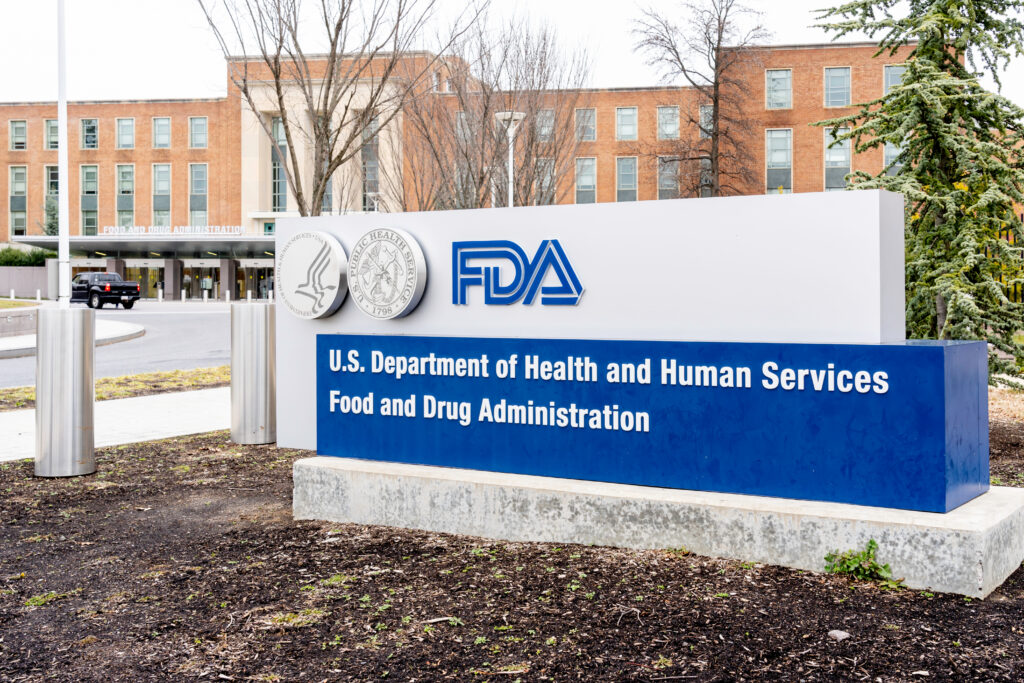The US Food and Drug Administration (FDA) has raised concerns about early clinical trial deaths as part of Johnson & Johnson (J&J) and Bristol Myers Squibb’s (BMS) applications seeking earlier treatment lines for their multiple myeloma CAR T-cell therapies Carvykti and Abecma, respectively.
While the FDA says the therapies have significant benefits in delaying tumor progression, the agency will obtain input from experts of its Oncologic Drugs Advisory Committee (ODAC) this Friday to determine whether the negative trend in overall survival early in the studies is “acceptable in the context of the clinical benefit.”
J&J is hoping for FDA approval to move Carvykti to a second-line myeloma treatment, while BMS is looking for a third-line approval. Both are currently indicated as fifth-line treatments for multiple myeloma. Approval for the therapies as earlier treatments could expand the treatment to blood cancer patients who have not been treated with multiple therapies and thus may better tolerate them.
According to data from the Phase III CARTITUDE-4 trial, eight percent of patients died before disease progression after receiving Carvykti, which is significantly higher than the two percent deaths among those treated with standard-of-care therapies. In its Phase III KarMMa-3 trial, Abecma was associated with a preliminary nine percent increased risk of death.
In briefing documents, both J&J and BMS said differences in pretreatment bridging therapies, where some patients did not receive the CAR T-cell therapy in time (in some cases because they did not live long enough) or any multiple myeloma treatment, could account for the results, and not toxicity or manufacturing issues.
According to Reuters, Guggenheim analyst Kelsey Goodwin said the FDA’s stance was harsher than expected but anticipates both therapies will score approval.
Related: FDA Issues Letters to CAR T-Cell Therapy Makers to Include Boxed Warning
J&J and Legend Biotech jointly developed Carvykti, while 2seventy bio is BMS’ Abecma development partner.
In their respective late-stage studies, both treatments helped prolong progression-free survival, with Carvykti leading to a 74 percent and Abecma a 51 percent reduction in the risk of progression or death compared to standard combinations.
Carvykti also demonstrated a positive trend in prolonging survival. At an interim analysis in November 2022, at which point one-third of deaths had occurred, a final overall survival analysis revealed a 22 percent reduction in the risk of death. According to a briefing document from J&J, as of December 13, 2023, when approximately half of all deaths had occurred for a final analysis, the survival benefit widened to 43 percent.
In a safety analysis, the FDA noted that 11 percent of patients who received Carvykti died of treatment-emergent adverse events (which aren’t always equivalent to treatment-related events) compared to eight percent in the standard therapy group. Of note, COVID-19 accounted for 3.7 percent of the Carvykti arm deaths versus 0.5 percent for the control arm.
According to the FDA’s briefing documents for the therapies, the agency appears to have more concerns about Abecma than Carvykti.
For Abecma, at the first interim analysis and up to about 15 months, there were more deaths among patients who received Abecma than in the control group.
While the FDA is considering whether additional data for Carvykti might help better support a favorable benefit-risk assessment since Carvykti’s overall survival benefit improved over time, the agency doesn’t feel the same way for Abecma.
FDA reviewers noted in a briefing document that for Abecma, “additional follow-up of overall survival even if statistically significant, is unlikely to overcome the increased risk of early deaths.”
BMS also said a high 56 percent crossover rate — where patients in the control arm later received Abecma upon disease progression — could be another factor and if it was adjusted for, the therapy could have shown a positive overall survival trend.
However, the FDA remains skeptical, noting that BMS’ analyses “rely on unverifiable and questionable model assumptions, limiting their interpretability.”
The upcoming FDA advisory committee meeting will address these concerns and others, including logistical and manufacturing challenges.
Late last year, the FDA launched an investigation into the risk of secondary cancers associated with CAR T-cell therapies, which culminated in the agency requiring a boxed warning on all approved therapies.
Despite this, the FDA acknowledges the overall benefits of the treatments, which have been transformative in blood cancers.
If you want your company to be featured on Xtalks.com, please email [email protected].












Join or login to leave a comment
JOIN LOGIN